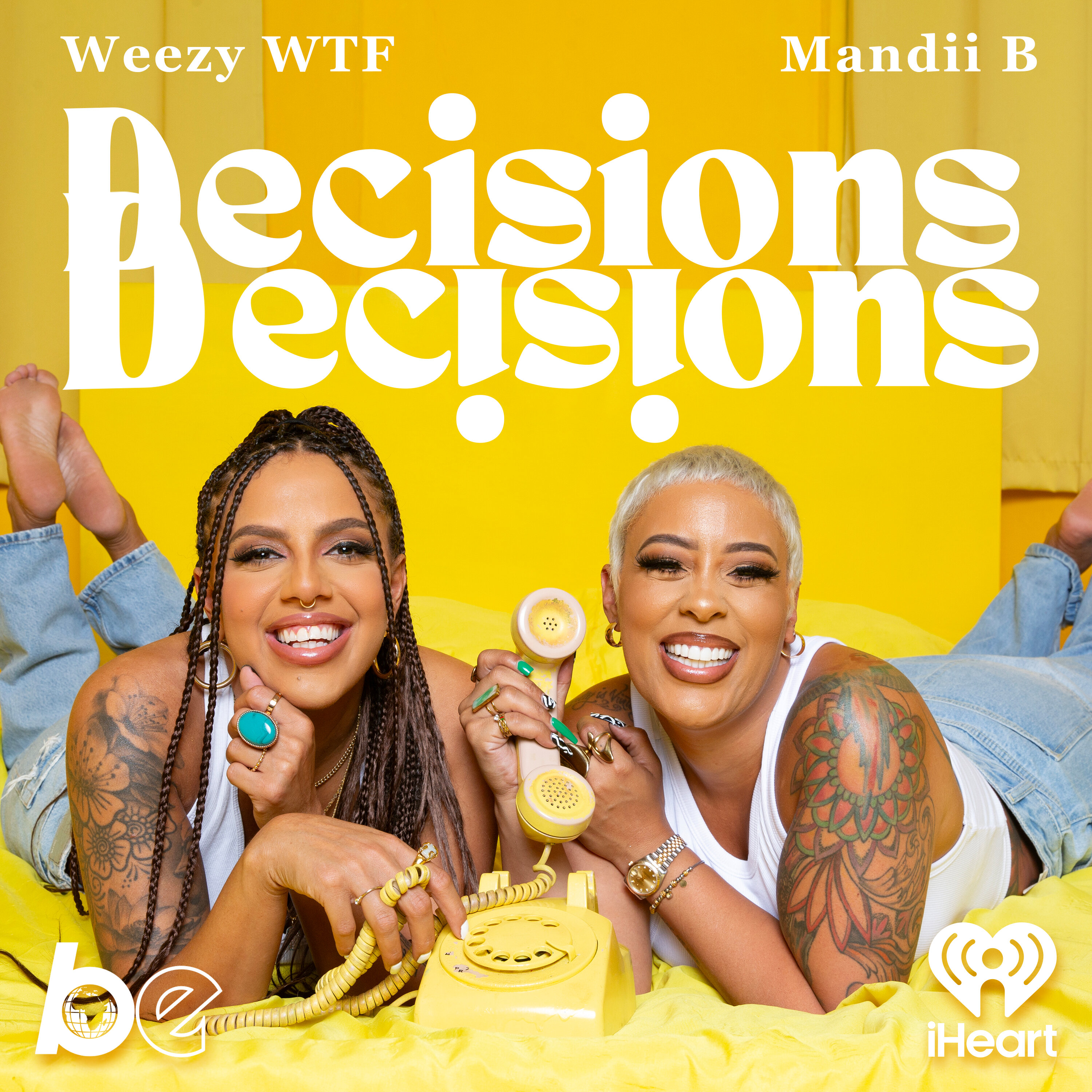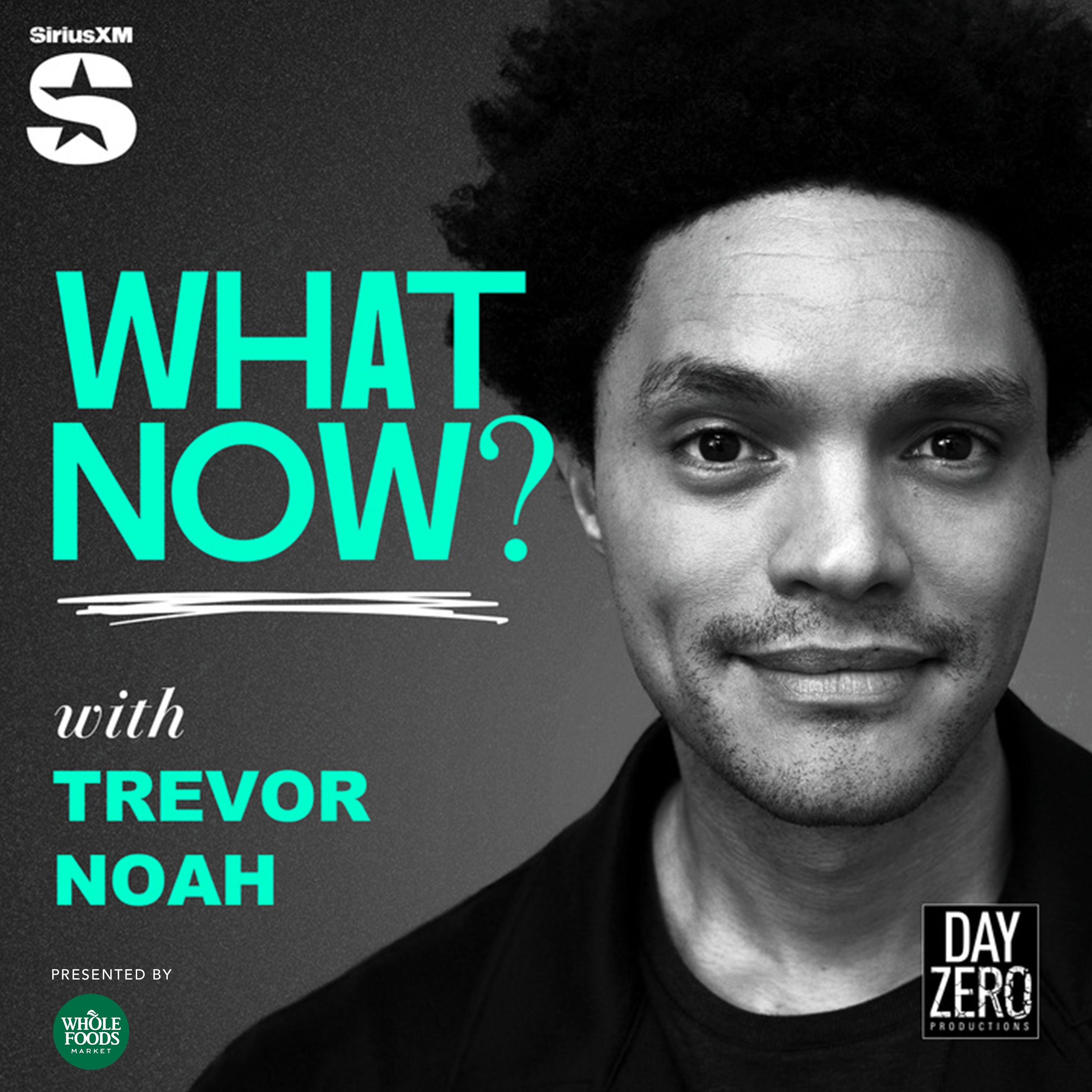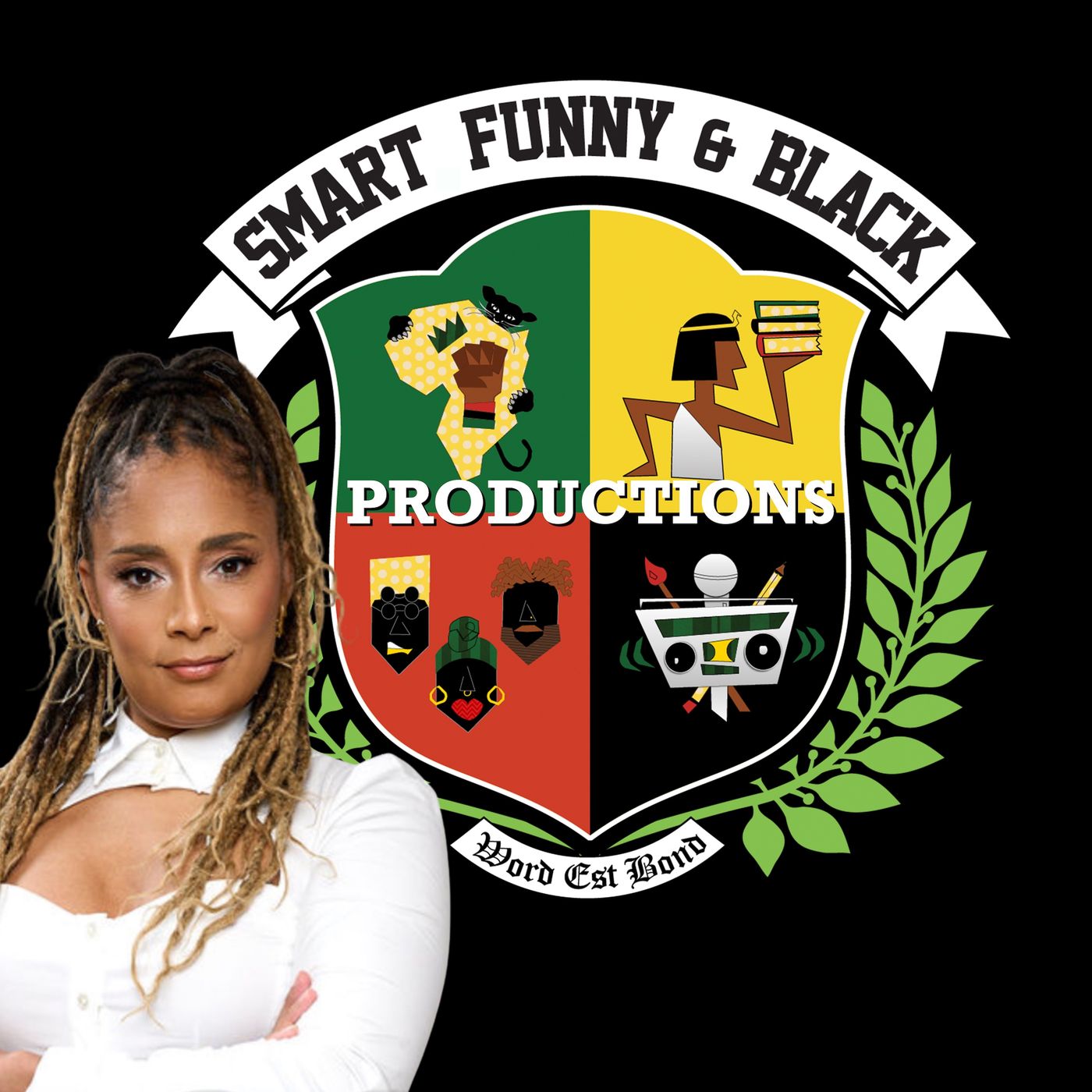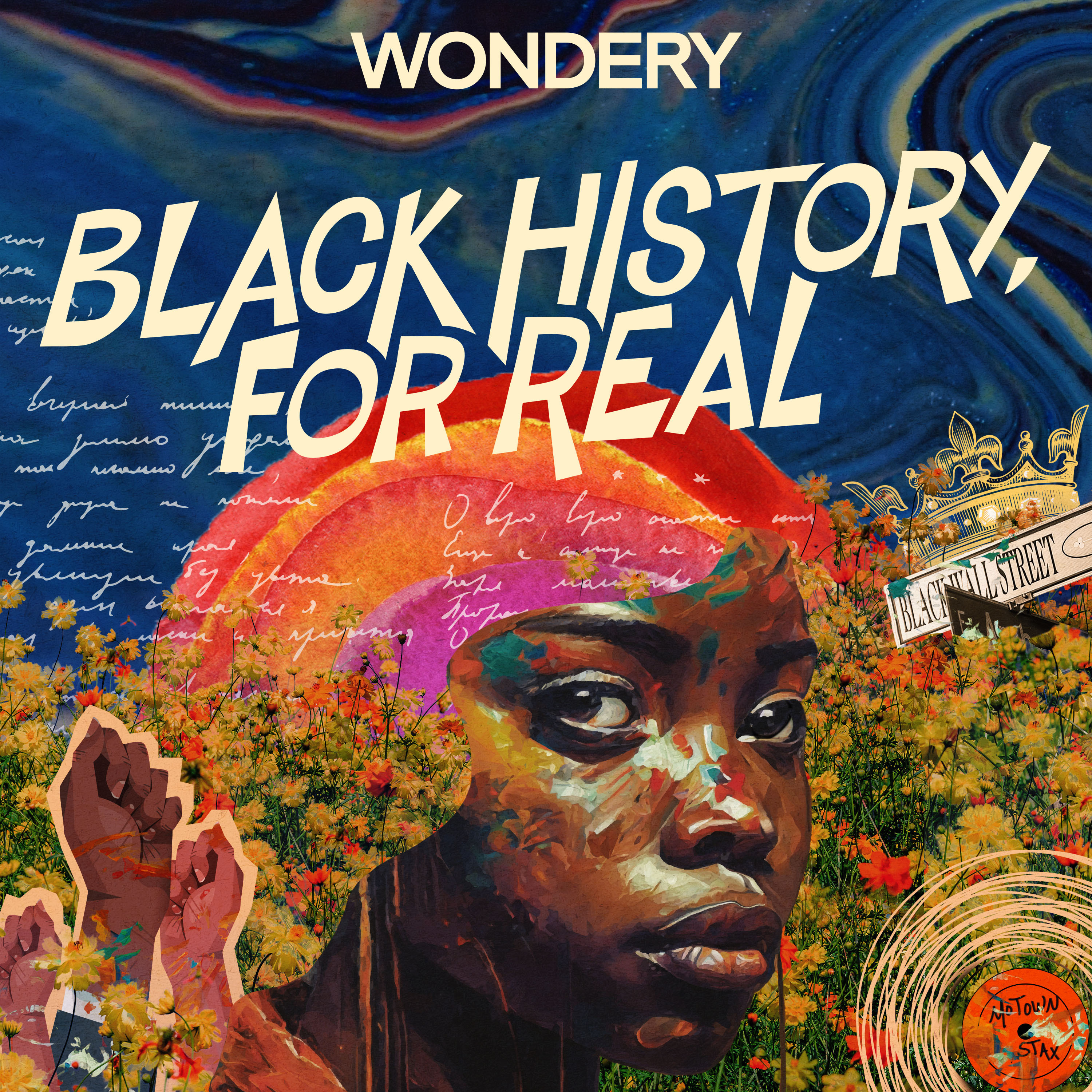Please Say The Dailey
Please Say The Dailey is hosted by Vanisha R. Dailey, a sociologist and cultural commentator exploring queer identity, community, and the social systems that shape everyday life. Through research-informed conversation and cultural analysis, the show examines sexuality, digital culture, sustainability, and the norms we take for granted—bridging lived experience and sociological insight.
Please Say The Dailey
The Importance of Community in Maternal Health and My Birth Story
In this episode, Vanisha R. Dailey delves into the serious topics of maternal health, community support, and the unique challenges faced by Black mothers. She shares her personal birth story, highlighting the systemic issues in maternal healthcare and the importance of community in navigating motherhood. The conversation emphasizes the need for societal support and understanding of diverse parenting experiences, including those of LGBTQ individuals and the intersectionality of identity in motherhood.
@NyaraiWaistBeads
https://www.instagram.com/nyaraiwaistbeads?igsh=NG8yd3drYnM4YWc1
@LaborWithKaci
https://www.instagram.com/laborwithkaci?igsh=NzZyYndzaDZvOHNo
Preeclampsia stats
https://www.rochesterregional.org/hub/preeclampsia-risk-african-american-women
How Soon Do Mothers Go Back To Work?
Become a supporter of the show!
Thank you for visiting!
Vanisha R. Dailey, Please Say The Dailey
SayTheDailey@gmail.com
Become A Supporter Of The Show:
https://www.buzzsprout.com/2452408/support
Instagram: @VanishaRDailey
Love the music playing on my podcast? Check out the talented @StrBabyJackson on Instagram and thank me later!
You
SPEAKER_02:are now tuned into Venetia R Daily. Please say the daily. Hey, hey, y'all. Welcome back. This is episode seven of Please Say the Daily. I am your host, Venetia R. Daly. And as promised, I told y'all I would be dropping two episodes this weekend. I know I've been gone for a minute. Now I'm back with a jump off. But let's shift the energy a bit because this will feature more serious topics pertaining to maternal health, motherhood, community, and in the last section, I'll even share a bit of my own birth story. So let's get into it. If you're new here, I have a BA in sociology with a focus in environmental and natural resources. And there is a portion of sociology that recognizes the intersectionalities and the vast complexities of identity within our society. And even though I am focusing on the motherhood experience in this episode, because that is my own firsthand experience, as an activist and a voice of the LGBTQ community, I have to remind you that there are people who do not identify as women that also have the ability to birth babies, hence some of the language and word choices within this discussion. Trans people do exist within our society, whether you like it or not. A few days ago, someone on threads tried to convince me that a person doesn't have to be transphobic to not believe in trans identity. To which I replied, to not see people for who they are, to be bothered by their very existence, to feel the need to tear the title away from them, whether that be woman, man, trans, whatever, and to not respect their pronouns are all hateful and definitely transphobic. It's all rooted in transphobia. The definition of transphobia from Webster means transphobia. Discrimination against aversion to or fear of trans people. And to discriminate against a person is to treat someone in an unfair manner or unfavorably based on characteristics like race, gender, age, or sexual orientation. People are often super vocal about how they believe trans people should live their lives or how they're an abomination to society. But as soon as you label them as being transphobic, all of a sudden they reject and deny being such a thing. And it's funny because it sounds oddly familiar to how racists react when they're called out for their behavior as well. Side note, if you are a trans person navigating parenthood, I'd love to hear your unique story. So if that is you and you'd like to be featured on my podcast, please reach out to me on Instagram at VenetiaRDaily, or you can shoot me an email at SayTheDaily at gmail.com because your stories are important as well. Over the past month or so, I've observed and have been hearing a variety of personal stories from mothers on how they navigate their motherhood experience. And of course, that is interlinked with the overall family unit, support, and community. Parenthood can look different from one family to another, just as anything else, because it isn't a linear experience and everyone's situation is unique within their household. Some are single parents. Some have help from grandparents. Some of us have partners that are very hands-on. And others, regardless of being in some type of partnership, may not always have a partner to lean on because they are the ones usually present with the children, often called the default parent. The birthing person is commonly the default parent, but there are definitely some fathers in that position as well. Some people do have help from ex-partners, but those situations come with their own unique dynamic because maybe the parents aren't cohabitating anymore or maybe they were never living together to begin with. So they have to be exceedingly intentional in how they split their time and spend their time accordingly with children being involved. All of these different types of dynamics impact how an individual is able to navigate their own life in conjunction with being a parent. The responsibilities that come with parenthood can often require a parent's complete undivided attention in many ways that are completely out of the parent's control, making them unavailable to the outside world. For example, not being able to hang out after the hour of five on a weekday. not being able to take a phone call because maybe your children are literally bouncing off the walls and screaming their heads off. Or maybe you can only hang out with your friend with your child in tow. And those situations can differ depending upon age range, how many children there are, and what kind of support system is available. I remember before I became a mother, I never understood why mothers always talked about needing mommy friends. This will come up all the time. And I'm thinking, a friend is a friend, right? And while, yes, that is true, the reality is that having someone that would be more inclined and likely to understand your experiences because they themselves have experienced it, it becomes a shared commonality to bond over. I now fully understand why mothers need mommy friends and I would even venture to say that parents in general, regardless of their gender, need others in community that they can relate to while navigating their own personal journey with parenthood. It's so good for our well-being. Thankfully, I have a couple of childless friends that are super loving, understanding, and considerate to me being a mother. Part of that is likely because they are used to interacting with children. They either grew up in large families where they had many siblings, often caring for younger brothers and sisters, or they are very present in the lives of their nieces and nephews. I say all that to say, just because a person does not have children does not mean that they are unable to conceptualize the various nuances of parenthood. However, there are some folks that just don't even think about how your obligations and responsibilities change when you're a parent, at least for most of us. And in their defense, these are typically people that don't live their day to day lives considering the well-being of young children. For instance. I had Onawa during the pandemic, September 2020, and she had to have been like two or three months old. She was still an infant. But an old friend of mine had invited Jesse and me to a kickback at their place. He said, I'm going to have some friends over and we will play games, smoke, drink. You all should come. Never mind that I don't smoke or drink. I guess he was just giving me the heads up on the vibe. But my first thought was, Is there not a full-blown pandemic happening right now? I am sitting in bed breastfeeding a newborn baby in complete isolation, away from the outside world right now. But thank you for the invite, I guess. When I was about five months postpartum, I went to this woman named Ashanti for some waist beads. As a matter of fact, her Instagram is at NayareWaistBeads. This was my way of trying to reconnect with my new postpartum body. So Ashanti ties waist beads in the most beautiful, spiritualistic way while smudging the waist beads and really just speaking so much love and positivity into you while tying the waist beads. While we were talking about my postpartum journey, I was explaining to her how I was trying to find my footing through all of the changes with being a new mother. The physical changes, the lack of sleep, literally a complete whirlwind and uprooting of my entire adulthood and womanhood experience, which is the epitome of being a new mother. But when we were talking about the importance of finding community as we navigate the complexities of motherhood, she said, Where there are women, there are children. And that line has stuck with me ever since, because even though childbirth is such an innate process for many, it is literally necessary for the very existence of humanity. So why is it so common that countless mothers often feel abandoned and overlooked within our society? Where is the village? Having such a big shift in one's life, such as becoming a mother, changes every single relationship around that person, for better or worse. And it even changes how the world views them. Within the motherhood journey, the newness of it all, we try to find our safe spaces. Spaces that help uplift, encourage, and pour loving care into us while we embark on one of the biggest transitional periods of our lives. Yet far too many mothers, especially in American society, frequently find themselves to be quite drained, overwhelmed, and lonely in their motherhood journey. Which is exactly why postpartum depression is so prevalent. Now is a good time to remind everyone that the stage of postpartum starts right after the baby is born. And postpartum depression is a bout of depression that can occur when a person is in that postpartum window. Postpartum and postpartum depression are two different things. And I've noticed that people are starting to use the word postpartum when they actually mean postpartum depression. This is why they say that a mother will always remember who was there for her during her postpartum period, because it's such a fragile yet intense period of time with hormonal chaos. And on top of that, what typically happens once a woman has a child is that There is a stark change in the attention that a mother receives from people because now that attention is being poured into the baby, leaving a mother feeling unseen and unsupported. Visitors will rush over to the homes of parents to hold their newborns. But what about taking a moment to actually check in with the parents to see how they're doing or asking the parents, what do you need? What can I help you with? Have you eaten? These are the people that parents need in their space during these times. What does community look like for a parent? People that we trust and share core values with. They're respectful to our rules and boundaries around parenting and child rearing. That can encompass literally anyone. There are countless roles that can help build a cohesive community of people in which everyone feels seen, supported, and hopefully even cared for and loved in some capacity. It's an array of people who do their part to collectively care for each other. But the most important piece to the equation is that the community has to be open to children and inviting to children because they are also community members just as elders. But when you have people that give parents a hard time for bringing their children into spaces that are, in fact, appropriate for all people, it feeds into the culture of people who dislike and dehumanize children under the belief that they are undeserving of having certain kinds of experiences just because they are children. This comment was posted on threads by username TheBodeLife, where she said, You're entitled to a childless life, but not a child-free world. My toddler will be on planes and restaurants and at stores. She deserves to experience the world and I'm not keeping her home just because you don't want kids around. Another user says, nobody asked you to keep your crotch goblin locked up in an ivory tower. Just make sure they're not disruptive slash destructive. It's literally your job as a parent. Then lastly, she says, who said my child was being destructive and disruptive? She was asleep and still got complaints. The amount of pushback she got from this very basic post didn't even make sense. We are so far gone. Must I remind everyone that she is talking about a human being, her child. So why are the reactions so harsh? Why are we talking about children in this manner? And also, have we forgotten that we've all been children at one point in time? One thing that really stood out was the fact that people from other countries kept saying, only in America this would be a thing, implying that their countries are welcoming to children and how ridiculous and self-centered American people are within our communities. And this is where I completely agree. I swear every time I put together one of these episodes, I find a new research topic that I'd like to spend some time looking into. There is a severe culture of people who have a serious disdain for children. Some of them are child-free and some are parents as well. The dehumanization of children is something that runs rampant in our society. My question to people that dislike children is, Where does this place the people in your lives that either have children or will in the future? How is that type of mentality conducive to positive community building? It's no secret that there is a severe lack of structural support for parents in America. I recently heard that in every state on average, parents are paying more for childcare than they are for their mortgage. As stated before, mothers in American society have more issues with postpartum depression because of the lack of social support and community. America is one of the wealthiest industrialized countries, yet most of us don't have paid maternity and paternity leave from our jobs. When we look at the values of humanity, especially in Western modern day societies, actually, let me just say in American society, we are so disconnected from the ideals of genuine community and having the infamous village that many of us crave for, not just parents. We have been forced into a way of life that decentralizes the value of community. We have no choice but to chase the fallacies of the American dream. We move away from loved ones in hopes of finding better opportunities for upward mobility, more money, better jobs, better schools. Most of us have no choice but to overwork ourselves to stay on top of our livelihood and the never-ending mound of bills. All of these factors shift the values of people into being more individualistic. too busy and self-absorbed within the hustle of our own lives, or we don't have the capacity or desire to take the time to care for each other. Yet here it is, we will go on social media after scrutinizing a parent for wanting their child to experience life with them. And then we'll watch videos of people from different countries, praise their cultural norms of caring for their neighbors, sharing food and looking after their elders. We have the ability to do the same thing, but it will require us to lead with softer hearts. Let's be more empathetic instead of judging others because that just creates more division and divisiveness between us. And this, my friends, is where the village went.
SPEAKER_01:Let
SPEAKER_02:me go ahead and give you a trigger warning before we start this next discussion pertaining to pregnancy, birth, and malpractices by medical practitioners. We just wrapped up Black Maternal Health Week, which was founded by the Black Mamas Matter Alliance to build awareness, activism and community building to amplify the voices, perspectives and lived experiences of Black mamas and birthing people. They hold a bunch of discussions, activities and even webinars. Countless organizations across the globe join in to advocate and empower this international event for maternal health and rights. Dr. Jamila K. Taylor, who is the president and CEO of the Institute for Women's Policy Research, she's also a nationally recognized expert on Black maternal health. And she stated during last year's National Black Maternal Health Week that, Quote, End quote. and the reason behind this issue is systemic racism. That is why Black women are often not heard nor considered when in medical spaces which directly impacts the quality of care or lack thereof that they receive during pregnancy. The likelihood of death due to pregnancy-related complications are even worse when these Black women reside in states that have strict policies around access to abortion and reproductive health services. The Institute for Women's Policy Research woefully states that 45% of Black women and girls under the age of 55 that live in the United States are reside in states that have heavy abortion and contraceptive restrictions to their populations, or it's completely banned in their areas. I don't know if you all have seen that viral video circulating of that white doctor talking about how she witnessed doctors practice procedures on Black women when those procedures were completely unnecessary. She said there was a black woman who was in labor having her fourth or fifth baby. She never had any issues birthing her babies vaginally. And after the baby came out, the doctor was talking to one of the students in the room. I'm sorry, I don't know the proper academic name for those people who basically are soon to be doctors themselves. But the doctor asked this individual, had they ever repaired a fourth degree laceration? The medical term for this is an episiotomy. To which the person replied, no. This woman said that she witnessed the doctor take a pair of scissors and he put one blade into the vagina and the other into the anus and he cut the patient just so that the student could practice stitching a fourth degree laceration that was completely unnecessary and not consensual. She said that she witnessed multiple things like this happen and that they could never intervene or say what occurred in those events, which is really alarming. She now dedicates her work to advocating for Black women and drawing attention to this major issue because she's seen how so many Black women are being mistreated and overlooked in many medical spaces. I have even heard stories from my own loved ones that have experienced similar situations with episiotomies that were not consensual. So as you can imagine, from these statistics and stories mentioned, It is imperative to continue the conversation of Black maternal health to bring awareness to the disparities and its negative impacts on Black women to hopefully ignite the necessary changes to encourage there to be better maternal health care services for birthing people in general and especially Black women who are the most impacted. I am one of the many Black women that developed preeclampsia, which is when a pregnant person develops high blood pressure during their pregnancy, as well as protein being present in their urine samples. As stated by the Agency for Healthcare Research and Quality, quote, African-American women are 60% more likely to suffer from preeclampsia while pregnant and develop severe preeclampsia compared to white women in the United States, end quote. I developed preeclampsia during the very last week of my pregnancy, and this diagnosis completely derailed my original birth plan of having an unmedicated vaginal water birth. I was heartbroken, absolutely devastated to find out that I needed a C-section because when a person has preeclampsia, not only is the mother's health being jeopardized, but the environment is not the healthiest for the baby anymore. And depending upon how far along the mother is in her pregnancy, they will likely try to expedite the laboring process to get the baby out. And in my situation, I was pregnant for 41 weeks and three days, or maybe even four days at this point. So she was more than a week overdue. My entire body was swollen and they wanted her out ASAP. Even after all of the research and preparation that I had done during my entire pregnancy, I knew that there would come a point where I I would just have to surrender and really trust the process of birthing my baby. Because let's be honest, no one legitimately knows how their birthing story will unfold. It can happen at any point, under any circumstance, at any location, whether you're ready or not. And since my body was not showing any signs of labor, they started the induction process. After laboring for about two days unmedicated, the night of day two, I got an epidural because they were really concerned about how my blood pressure continued to rise. Their theory was that it was because I was fighting contractions and unable to rest my body. The morning of day three of being in the hospital, Onawa was born via C-section. Even though I did not have the experience that I wanted, and I felt so rushed in my laboring process despite being in the hospital for so long, my C-section went as smooth as it could have possibly gone. And I'm sure that's because I advocated for myself so intensely. I researched like crazy during my entire pregnancy. I will admit it was obsessive, but it was for good reason. I prepared myself as best as I could in case I would be faced with a serious situation. I had my amazing doula present, Casey Griffin. I had midwives. I told my husband, Jesse, exactly what I wanted so that he would know what to say in case I was unable to communicate. I had no problem telling the doctors that I wanted a gentle C-section and explain what that looked like as well. I even asked them for privacy in moments when I needed time to properly assess what I was up against and how I wanted to face it. I am beyond thankful that I was able to safely make it to the other side alive and healthy with a healthy baby in my arms, because there are many people who do all of the preparation just as I did. But unfortunately, the outcome is not always the same.
SPEAKER_01:Running up the numbers out the way I stay low. Ask me why.
SPEAKER_02:Goodness, that was a lot of information and personal accounts that I shared. I would love to hear your thoughts and personal stories about this episode because I'm sure it's relatable to many of you. So please leave me a comment or reach out to me on Instagram at Venetia R. Daly. Please make sure you subscribe to my podcast and share it with a friend before you head out too. Until next time.
Podcasts we love
Check out these other fine podcasts recommended by us, not an algorithm.

Decisions, Decisions
The Black Effect and iHeartPodcasts
What Now? with Trevor Noah
Trevor Noah
SPOON SPACE
Sunny Dee
LOVERS by shan
LOVERS by shan
Late Night With Ler And Lionel
L&L Network
justUS
justUS Productions
The Mel Robbins Podcast
Mel Robbins
Smart Funny & Black Productions
Amanda Seales
Black History, For Real
Wondery
The Mama's Den
Black Love Podcast Network
Hope & Hard Pills
Andre Henry, TRISHES
Views from AmandaLand
Amanda Seales